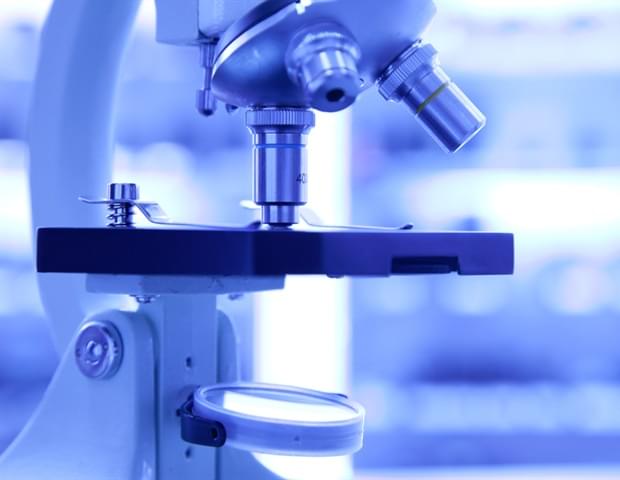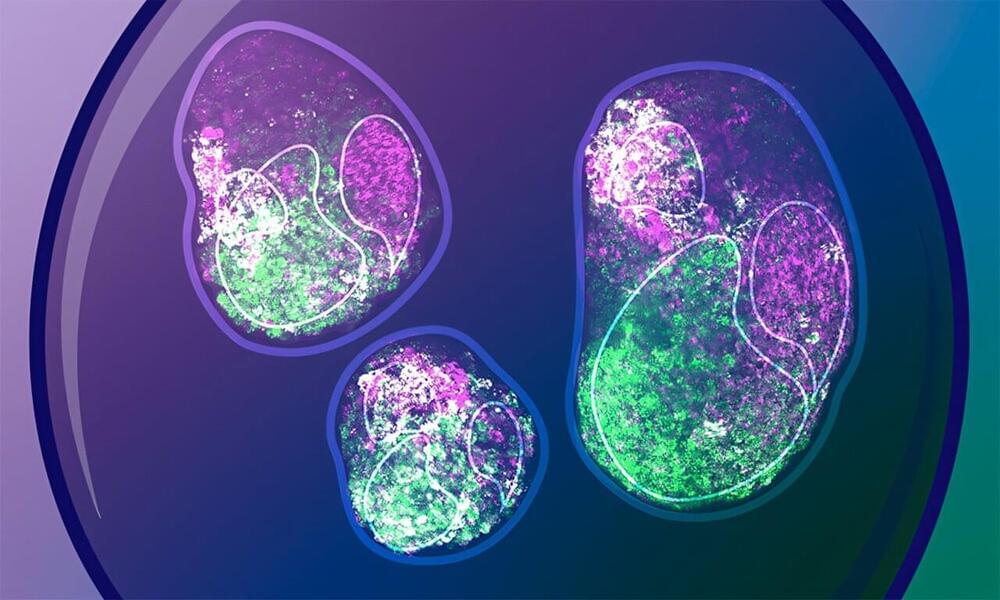We humans may have beaten the odds.
Summary: Scientists have reprogrammed mouse cells into pluripotent stem cells using a gene from choanoflagellates, single-celled organisms related to animals. This breakthrough demonstrates that key genes driving stem cell formation existed in unicellular ancestors nearly a billion years ago.
The resulting stem cells were used to create a chimeric mouse, showcasing how ancient genetic tools can integrate with modern mammalian biology. This discovery redefines the evolutionary origins of stem cells and may inform regenerative medicine advancements.
Then, in the 1980s, neutrinos from this supernova were picked up by the Irvine-Michigan-Brookhaven detector deep underground in Ohio. The discovery marked one of the first measurements of neutrinos from beyond our solar system, helped kickstart the field of observational neutrino astronomy, and provided a starting point that next-generation neutrino detectors continue to build on.
But the discovery was also lucky: The detector was built primarily to study proton decay, rather than neutrinos. “When you build a new detector with new capabilities, you’re sensitive to things that you never expected,” says Henry Sobel, a physics professor at the University of California, Irvine, and one of IMB’s original collaborators. The unexpected supernova would shape the legacy of IMB, which was recently recognized as an APS Historic Site for its role in neutrino science.
In the mid-1970s, teams of physicists were racing to build detectors that could measure proton decay, a hypothesized phenomenon that would confirm Howard Georgi and Sheldon Glashow’s new Grand Unified Theory, one that sought to unite three of the four fundamental forces of nature. The winner emerged in Painesville, Ohio, a small city northeast of Cleveland: The IMB detector, the world’s first kiloton-scale nucleon decay detector, began collecting data in 1982.
Minuscule particles of plastic are not only bad for the environment. A study led from Umeå University, Sweden, has shown that the so-called nanoplastics which enter the body also can impair the effect of antibiotic treatment. The results also indicate that the nanoplastics may lead to the development of antibiotic resistance. Even the indoor air in our homes contains high levels of nanoplastics from, among other things, nylon, which is particularly problematic.
“The results are alarming considering how common nanoplastics are and because effective antibiotics for many can be the difference between life and death,” says Lukas Kenner, professor at the Department of Molecular Biology at Umeå University and one of the researchers who led the study.
Nanoplastics are plastic particles that are smaller than a thousandth of a millimetre. Due to their smallness, they can float freely in the air and have the ability to enter the body.
Making Life Multi-Planetary
Posted in government, internet, satellites
SpaceX was founded to increase access to space and help make life multiplanetary.
In just this year, we’ve launched 114 successful Falcon missions and counting for our commercial and government customers, deployed ~1,700 @Starlink satellites to provide high-speed internet for millions of people all around the world, and made extraordinary strides developing Starship’s capability to return humanity to the Moon and ultimately send people to Mars.
If you want to join the team and help build a more exciting future, check out the latest job openings across the company → https://www.spacex.com/careers
We all start our lives as symmetric balls of cells. In humans, during the first few weeks after fertilization, embryonic cells undergo several rounds of division, increasing their mass. Then comes gastrulation, the process that changes everything and establishes our body plan. During gastrulation, the collection of uniform cells that make up the early embryo break symmetry and reorganize into a multi-layered structure with distinct cell types.
At this pivotal moment, our body plan is set. Gastrulation also establishes the three body axes: head–tail, front–back, and left–right. This process requires cells to interact and coordinate with each other with astonishing precision. However, how this is achieved is still largely a mystery.
The Trivedi Group at EMBL Barcelona studies how cells give rise to our body plan and has now published a study in the journal Development that may enhance our understanding of early mammalian development.
CWISE J1249 is the first known brown dwarf-like object to leave the Milky Way.
While stars typically follow predictable paths around the Milky Way, a groundbreaking discovery revealed a hypervelocity object, CWISE J124909.08+362116.0, speeding out of the galaxy at nearly 1 million miles per hour. This remarkable find, credited to NASA’s Backyard Worlds: Planet 9 citizen science project, marks the first time an object of such low mass, possibly a brown dwarf or small star, has been observed breaking free from the galaxy’s gravitational pull.
Using data from NASA’s WISE (Wide-field Infrared Survey Explorer) mission, citizen scientists identified the faint, fast-moving object. Initial observations from 2009–2011, followed by confirmations using ground-based telescopes, led to this discovery. The study, now published in the Astrophysical Journal Letters, underscores the power of citizen science in advancing astronomical research.
Critical flaws in Progress Kemp LoadMaster and VMware vCenter Server are under active exploitation, warns CISA.
Cybersecurity researchers have shed light on a new stealthy malware loader called BabbleLoader that has been observed in the wild delivering information stealer families such as WhiteSnake and Meduza.
BabbleLoader is an “extremely evasive loader, packed with defensive mechanisms, that is designed to bypass antivirus and sandbox environments to deliver stealers into memory,” Intezer security researcher Ryan Robinson said in a report published Sunday.
Evidence shows that the loader is being used in several campaigns targeting both English and Russian-speaking individuals, primarily singling out users looking for generic cracked software as well as business professionals in finance and administration by passing it off as accounting software.
The rebirth of commercial supersonic flight has kind of, sort of come to pass as Dawn Aerospace announces that its 16-ft (4.8-m) autonomous Mk-II Aurora rocket-powered aircraft broke the sound barrier with a speed of Mach 1.1 on November 12, 2024.
Ever since the Anglo-French Concorde retired in 2003, civil supersonic flight has been something of a lost art. In recent years, a number of startups have been working on various projects to create a new generation of supersonic transports that are quieter, greener, more efficient, and cost effective to operate.
Now, one supersonic aircraft has actually taken flight, albeit in the form of an uncrewed experimental craft with a wingspan of 13 ft (4 m) and a dry weight of 880 lb (200 kg). In the skies over New Zealand’s Glentanner Aerodrome near the base of Aoraki/Mount Cook, the Mk-II Aurora hit Mach 1.1 while climbing to an altitude of 82,500 ft (25,150 m).









